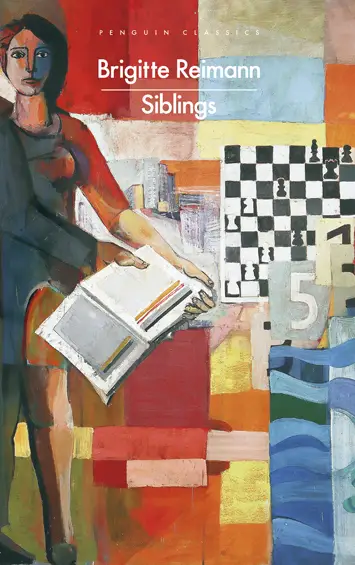Siblings by Brigitte Reimann – Review

By Barney Bardsley
This beautiful, enigmatic little book was first published in German in 1963. It has taken 60 years for British publishers to bring out an English translation, and whilst this story of the East West German divide would have had particular impact in the Cold War era, it still has the power to move and provoke, all these years later. A particular example of the agony caused by the raising of the Berlin Wall in 1961, it reads with laconic power and precision, and has been so expertly translated by Lucy Jones, that it is hard to remember that one is not reading the story in its original language.
The author, Brigitte Reimann, appears to have been a cult figure in her native East Germany. Born in 1933, she died tragically young in 1973. This makes her wonderful aim of living “30 wild years instead of 70 well-behaved ones” doubly powerful, and poignant. She draws on bitter personal history in this novel, since her eldest brother left for the West from the German Democratic Republic in 1960. One can barely imagine the destructive influence of a partitioned country: with not just territory, but families – sometimes even houses – torn down the middle, in the name of ideology and power politics. Still, Siblings gives a rare insight into this reality, from a writer not just fired by a prodigious literary talent and imagination – but by direct family experience to boot.
The main character in the book is Elisabeth, a painter who is an official state artist in a building works in East Germany, where she uses her artist’s vision and youthful radical beliefs to further what she believes to be the noble cause of socialism in the new Soviet-led GDR. She is a fiery, principled young woman, not afraid to speak her mind, even when it upsets the rigid hierarchy of the local functionaries, and puts her own position in some jeopardy.
 “Spare and understated”
“Spare and understated”
There is honour in the code by which she lives, but in every area of her life she feels compromised. She does not conform to her parents’ passive acceptance of the status quo. She feels betrayed by her elder brother Konrad’s defection to the West. (She says, when she has a rare meeting with him, “I felt like I was standing on a cold, draughty platform, watching a train pull away that I had missed through my own fault.”) And she is heartbroken that her beloved younger brother Uli plans to follow him into exile – so much so that she tries to stop him in his tracks, in a move that almost destroys their brother-sister bond forever. Everywhere she turns, even in her relationship with her boyfriend Joachim, who is unequivocally one of the Party faithful, she feels hemmed in, deeply trapped. What is the answer? There is none, it seems, except to struggle onwards.
This is a subtle and sensitive book, which, in its spare and understated language reveals volumes about the realities of living in the former East Germany, and gives great insight into the personal conflicts experienced, both by those who defected, and – more interestingly – by those who decided to stay. In its descriptions of character, and its delicate evocations of the industrial landscape – “I tasted the smoke again and a whiff of coal dust. These were wonderful smells for those who belonged here.” – Reimann brings a forgotten world to life, in a way that both illuminates and educates us. It is a remarkable piece of writing – and makes one wonder what she would have gone to write, had she been given more time, more space, more freedom.
‘Siblings’ by Brigitte Reimann is published by Penguin Classics









